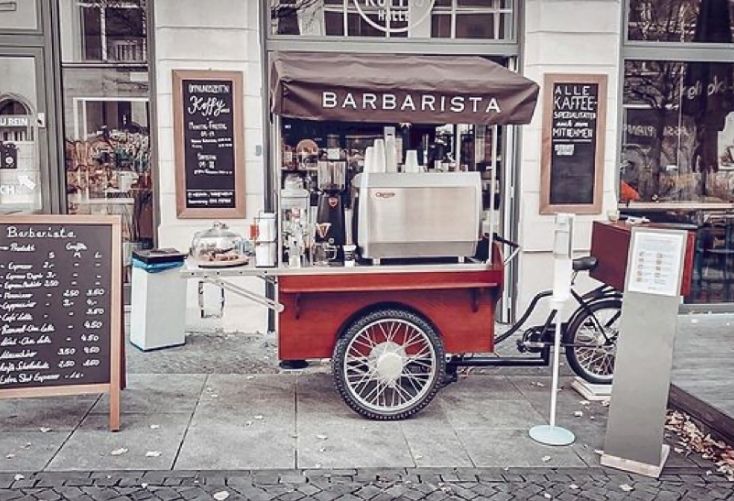- Robert Kropp, who has visited 140+ coworking spaces around the world, shares conversations he has had with workspace owners during the pandemic.
- There is growing demand for local coworking spaces, but what can we learn from this going forward? What does it mean for the future of the industry?
- In this first article, Robert explores the challenges local coworking spaces in England and Germany have faced and shares real stories of learning and growth.
The world isn’t just changing. It already has.
2020 has been a year of challenges, difficulties, changes, and stress on a global scale that has impacted how we live, work, purchase things, and enjoy our free time.
In this first article, I’ll be sharing notes and observations from multiple discussions with workspaces in England and Germany around what they have witnessed and experienced throughout this year, and are expecting in the future.
My hope with this series is to discover and share the real stories of challenge, learning, and growth of local workspaces around the world.
GOOD SPACE in Kilburn, London, England
One of my first conversations was with a workspace in the Kilburn part of London called GOOD SPACE. Started by a couple from the United States, I was able to chat with one of the co-founders, David Brown about launching a workspace in the height of a pandemic.
According to David, the biggest focus of their space is on attracting members from nearby in the neighborhood. As a result, “most walk to the office”. What was interesting was that when they were trying to launch in the early part of 2020, they were expecting most of their demand from independents and freelancers. According to David, that demand disappeared in March.
They delayed their launch until the summer and focused on people nearby that “just wanted to get out of the house.” By October, freelancers started showing up and as of November, their workspace is practically full (as full as it can be) even while lockdowns are looming.
Although freelancers and independents were an initial target, they are also seeing more teams expressing interest in meeting or working together in the workspace occasionally, so that they all can get together sometimes. So instead of everyone commuting to one center city location, the team can meet at a specific workspace that’s suitably located for everyone.
It was exciting to see the success of this space, while work from home and work near home concepts are colliding.
Additionally, the 5 and 10 day memberships are becoming more popular than ever before.
It appears that people often don’t really want to work from the same workspace all day, every day. They just want the flexibility and option of a workspace when they need or want it.
CoworkLand in Rural Areas of Germany
I had the pleasure to chat with Nicole Dau from the CoworkLand team. Founded as a cooperative, CoworkLand’s mission is to set up coworking spaces in rural areas and operate them based on coworking values.
She said that although it has been a challenging year, they have been able to continue to support their members and their network of spaces — including in new rural areas — especially as more people are looking toward moving and taking holidays in the countryside.
This year, CoworkLand has focused on enabling their coworking spaces to become what is needed for an area instead of trying to fit the same model as everywhere else. This matters even more in an era of seemingly constant change.
One size does not fit all.
For example, many of their network of spaces not only have desks for people working on a computer, but also spaces for more physical activities like yoga, carpentry, classes and more. It just depends on who lives in the area and what activities they tend to do. This focus helps to attract a mix of people with different demographics, experience, and expertise, together into one space.
Nicole says that these spaces are in turn “more sustainable and ultimately mirror the community of the area”.
As part of the longer-term vision of supporting rural communities, Nicole also mentioned that this year they and of course others are working with German politicians to make flexible work and remote work a right in the country.
The impact could be substantial depending on what that ruling might look like. However, for many the ability to choose where and when they work is increasingly becoming more important as we look toward 2021, and what it could look like.
VR Coworking in Tübingen, Germany (Near Stuttgart)
Tübingen is a university city nearby to Stuttgart. I was able to chat with Christopher Schmidhofer at VR Coworking powered by weXelwirken about launching a new space during the pandemic.
To start, Christopher launched his first coworking space about a decade ago in the first shared workspaces in a rural community in Germany. He wanted to build a place because he didn’t want to work by himself at home.
It was also critical for him to focus not just developing a great workspace but also on building the space into more of a community center, where both members of the space and those in the community could come together.
What I also found super interesting is that he gave some examples of people ‘reverse commuting’ by train from the middle of Stuttgart to his workspace in the countryside. There are also people in his newly created workspace that come there from a distance just to stay connected with the people.
He launched his most recent workspace in a partnership with ‘VR Bank Tübingen’ under the newly developed label ‘VR Coworking just before the pandemic hit in March of 2020. With lockdowns and plenty of ups and downs, it has been a challenging year. However, the original goal of building workspaces that people want to work in has remained.
One particular challenge he mentioned was in person events, which practically disappeared for much of the year. This has been fairly common across coworking and shared workspaces; generating revenue and workspace interest through events has taken a big hit across the entire industry.
As a result, they have been driving even greater success by focusing on having smaller scale events with the appropriate spacing and safety measure, offering meeting rooms or workspaces that are accessible without coming into the main open workspace, and spreading out their members across the space to keep their distance.
SaltLabs workplaces + coffee GmbH in Halle (Salle), Germany
Heading to the opposite side of Germany, I was able to chat with Sarah Zendeh from SaltLabs workplaces + coffee GmbH in Halle (Salle), Germany. It is about 40 minutes to Leipzig or 2 hours by car to Berlin.
We had a long chat but one of the first things that came up was how good and important their café was to the workplace. In the front of SaltLabs is the café called Koffij Halle.
It has always been a gathering point for the members of the workspace but also for the area as a place to work, hang out, enjoy a cup, etc. Even during the lockdowns when there was a requirement to be at a distance and you couldn’t keep a restaurant open, the café moved onto the street to provide people with the break they needed, albeit at a distance.
This revenue stream along with selling its own products and coffee beans is an important example of diversifying what a workspace offers to its members but also the general public.

Behind the café is the coworking space which has remained busy throughout much of the year.
According to Sarah, they wanted to focus on keeping the community together while improving the safety of the space. They knew they needed to spread people out more but they also focused on improving air purification especially as windows can’t really be opened during the cold of the winter.
Sarah also continued saying that with so much insecurity and anxiety today, it was important to do what was needed to remain open and adapt so that people in the community had the opportunity and flexibility to work somewhere when and if they needed.
There are plenty of other stories to continue to learn from, which I’ll share in Part 2. I’m looking forward to continuing having more conversations and sharing what’s happening across different types of workspaces and countries globally.
If you have any questions for me or would like to reach out for a suggestion or comment, let me know.



 Dr. Gleb Tsipursky – The Office Whisperer
Dr. Gleb Tsipursky – The Office Whisperer Nirit Cohen – WorkFutures
Nirit Cohen – WorkFutures Angela Howard – Culture Expert
Angela Howard – Culture Expert Drew Jones – Design & Innovation
Drew Jones – Design & Innovation Jonathan Price – CRE & Flex Expert
Jonathan Price – CRE & Flex Expert













